Corpus Christi Blog
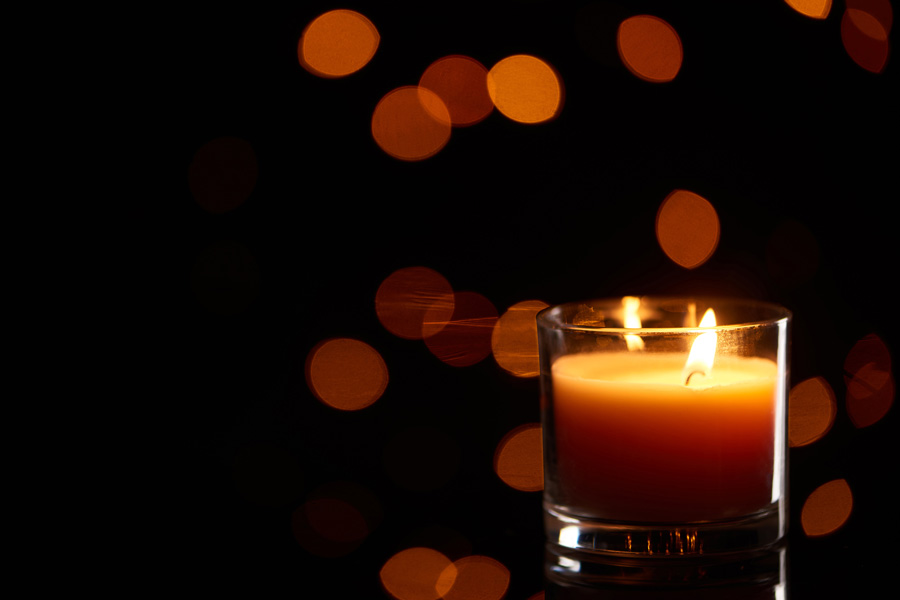
Dying Well — Wisdom from St. Bellarmine
11-02-2025Weekly ReflectionJen Arnold, M.A.On All Souls’ Day the Church invites us to remember and pray for all the faithful departed. It is a day where we acknowledge that death is the one certainty that each of us must face, but it is also a day of hope because we trust in God’s mercy and his promise of eternal life. For Catholics, All Souls’ Day is not a gloomy day of remembrance but an invitation to live now in such a way that we may die well, reconciled with God and at peace. Considering death as the most important event for which a person ought to prepare, St. Robert Bellarmine, a 16th-century Jesuit and Doctor of the Church, wrote a spiritual treatise entitled The Art of Dying Well (De Arte Bene Moriendi) to aid souls in obtaining eternal happiness. While written over four hundred years ago, Bellarmine’s wisdom remains as relevant today as it was then, so let’s explore some key principles for dying well.
READ MORE
Why Priests are Called “Father”
10-22-2025Weekly ReflectionJen Arnold, M.A.Among the more common challenges that Catholics encounter from non-Catholic Christians is the objection to calling priests “Father.” The basis for the objection is usually a single verse from the Gospel of Matthew where Jesus says: “And call no man your father on earth, for you have one Father who is in heaven” (Mt 23:9). At first glance, this verse seems straightforward, so are Catholics disobeying Christ’s teaching? Let’s take a closer look at what Jesus meant by his words and the foundational reasons for why we call our priests “Father.”
READ MORE
Jesus Christ — Fully Present in Both the Body and the Blood
10-19-2025Weekly ReflectionJen Arnold, M.A.The Sacrament of the Eucharist is one of the most beautiful gifts given to us by Jesus. It is an ongoing opportunity to receive all the graces that come from consuming, or adoring, the real presence of Christ in his body, blood, soul, and divinity. The Eucharist comes to us in two forms, or species — the consecrated Host and the Precious Blood. Sometimes, when you attend a Mass, you will find that the Precious Blood is not offered at all, while at other times you see a chalice offered at every communion station. Because of this, there can be some confusion as to whether there is a difference if you receive the Sacrament under one or both kinds, or if you are somehow being shorted if you are not offered the Precious Blood. Let’s take a look at what the Church has to say about receiving the Eucharist under one or both species.
READ MORE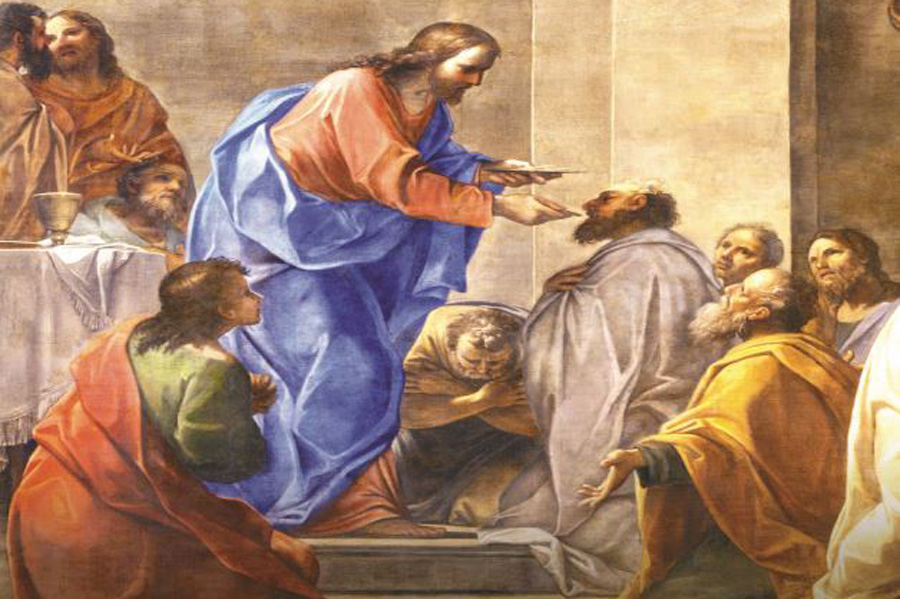
Satan’s Influence on Our Will
10-12-2025Weekly ReflectionJen Arnold, M.A.Last week, we discussed the nature of our free will and some indicators that can help us discern God’s influence on our decisions. Now, we’ll discuss the hallmarks of demonic influence on the will as detailed in Fr. Cliff Ermatinger’s book, Who’s Speaking: Discerning the Good Shepherd’s Voice from that of the Stranger.
READ MORE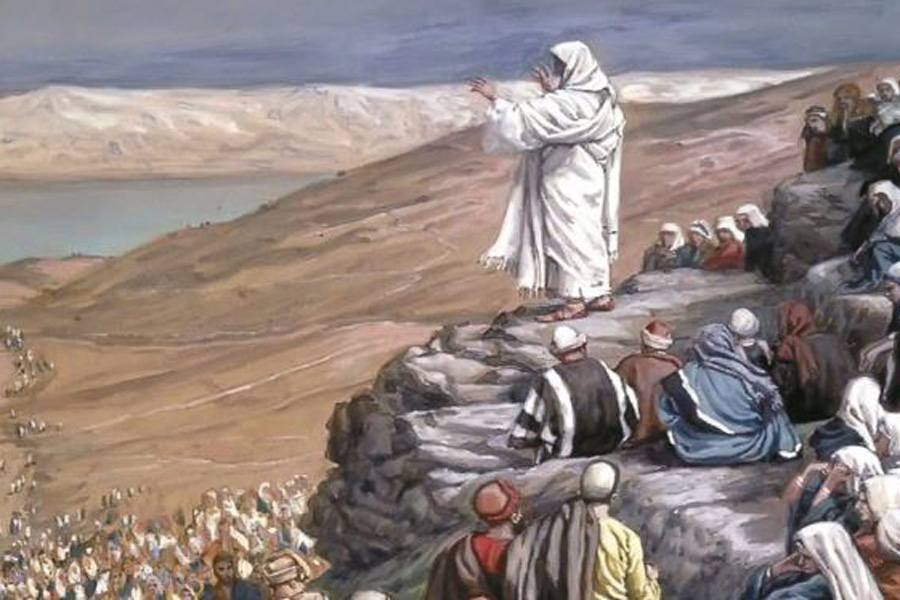
God’s Influence on Our Will
10-05-2025Weekly ReflectionJen Arnold, M.A.The past two weeks I have written about how we can discern between the voices that influence our thinking by identifying the hallmarks of both God’s and Satan’s influences on our intellects. Once we determine which of our thoughts are coming from the Stranger, we can more quickly and easily reject them so we can focus on the voice of the Good Shepherd that breaks through the darkness in our intellects caused by original sin. Of course, the work does not end with our thoughts. We must make choices and act on those thoughts. This week, continuing to draw from the wisdom of Fr. Cliff Ermatinger's book, Who's Speaking: Discerning the Good Shepherd's Voice from that of the Stranger, we will examine the hallmarks of God’s influence on the will. Next week, we’ll cover the hallmarks of the demonic influence on the will.
READ MORE
How to Distinguish Satan’s Influence on Our Intellect
09-28-2025Weekly ReflectionJen Arnold, M.A.Last week, we discussed the hallmarks of God’s influence on our intellects that help us distinguish the Good Shepherd's voice from all the distracting and competing voices in our minds. Drawing on the wisdom from Fr. Cliff Ermatinger's book, Who's Speaking: Discerning the Good Shepherd's Voice from that of the Stranger, we will now examine the hallmarks of demonic influence on the intellect, enabling us to more easily identify the thoughts that aim to divert us from our spiritual journey.
READ MORE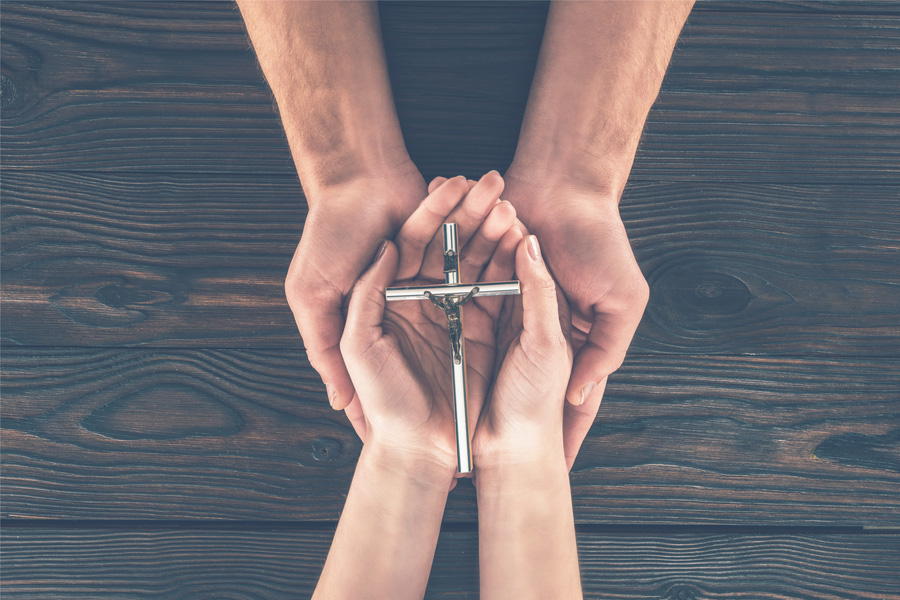
How to Discern God’s Influence on Our Intellect
09-21-2025Weekly ReflectionJen Arnold, M.A.Now, more than ever before, the world is filled with a lot of noise. When making decisions, we are bombarded with information, opinions, and advice from various conflicting sources. It can be difficult to distinguish Jesus’ voice in the midst of all of clamor. Sometimes, even our own internal voice, colored by our desires and emotions, can drown out the voice we need to hear most.
READ MORE
The Four Degrees of Love
09-14-2025Weekly ReflectionJen Arnold, M.A.St. Bernard of Clairvaux was a 12th-century monk who founded the Cistercian order because of his dissatisfaction with the growing opulence within the Benedictine order at the time. In 1830, he was declared one of the 37 Doctors of the Church by Pope Pius VIII, due to the extensive contributions to theological and spiritual thought he left behind in his writings. Today, we’ll look at one of these contributions — The Four Degrees of Love.
READ MORE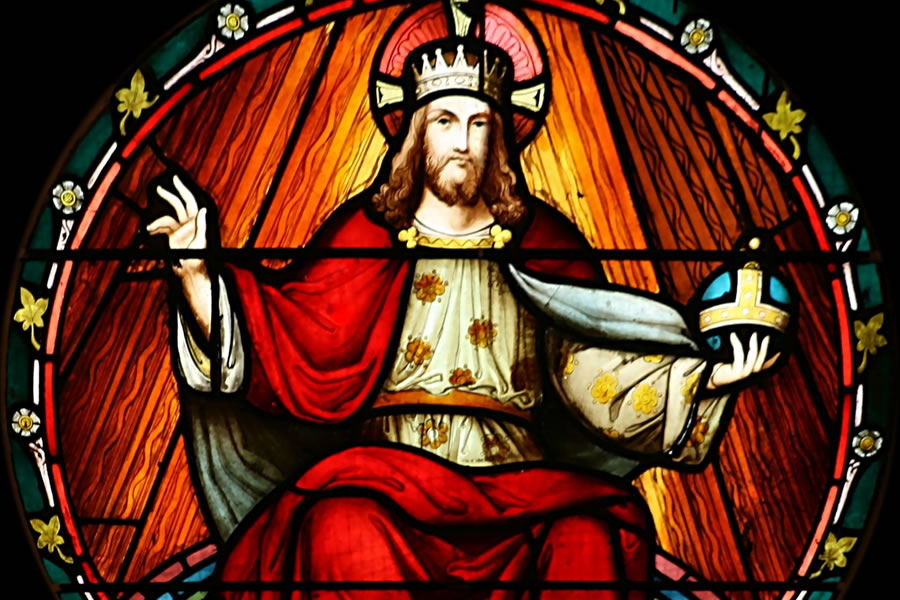
Our Share in Each of Christ’s Roles — Part 3: As King
09-07-2025Weekly ReflectionJen Arnold, M.A.We have spent the last two weeks discussing specific ways we can participate in Jesus Christ’s priestly and prophetic offices. This week, we will conclude our three-part series by examining our role in the kingship of Christ. First, we’ll explore what the Church teaches about what it means for us to be kings. Then we’ll discuss how to put that advice into practice in our everyday lives, based on the guidance provided by Fr. Mark-Mary Ames, CFR, in his book, Habits for Holiness: Small Steps for Making Big Spiritual Progress.
READ MORE